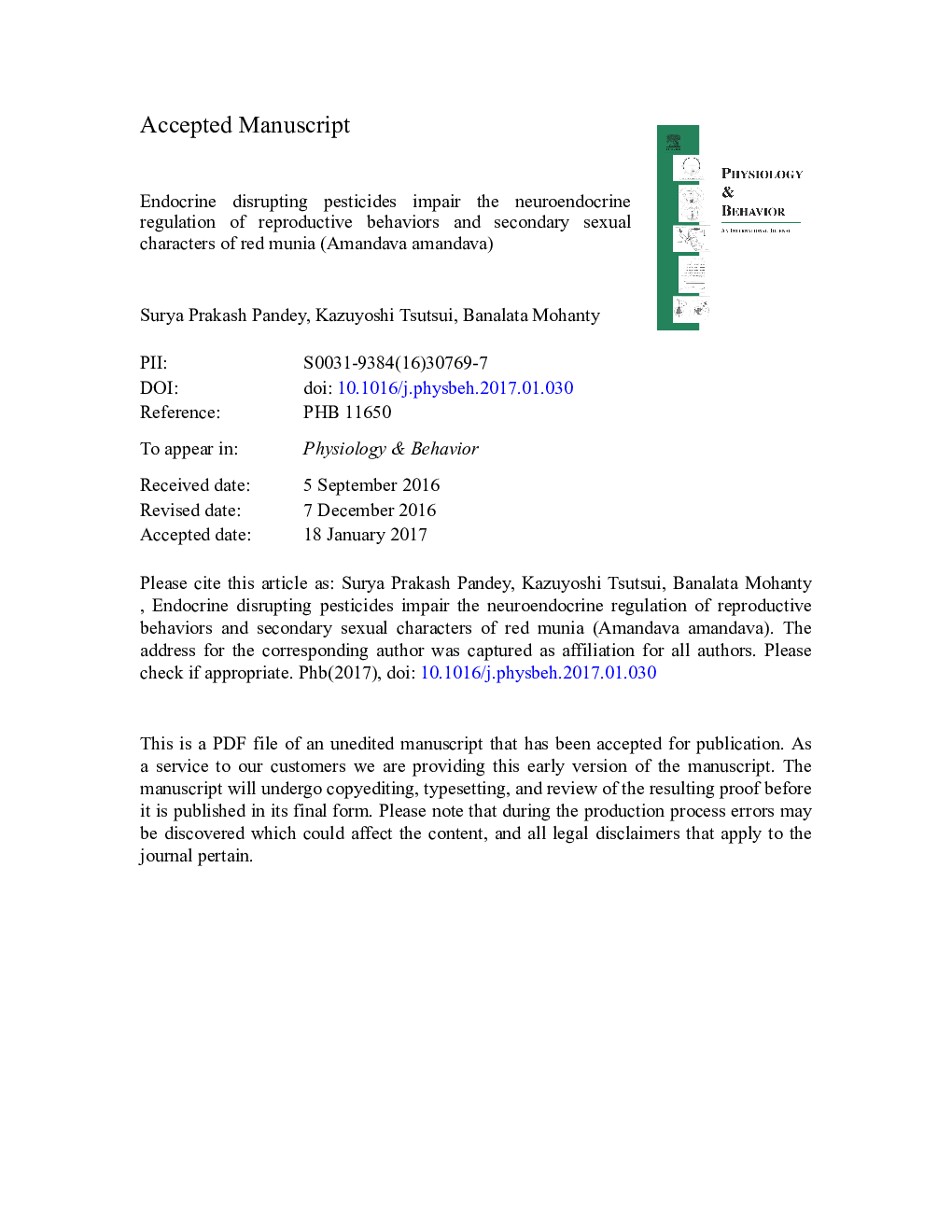| کد مقاله | کد نشریه | سال انتشار | مقاله انگلیسی | نسخه تمام متن |
|---|---|---|---|---|
| 5593910 | 1571146 | 2017 | 32 صفحه PDF | دانلود رایگان |
عنوان انگلیسی مقاله ISI
Endocrine disrupting pesticides impair the neuroendocrine regulation of reproductive behaviors and secondary sexual characters of red munia (Amandava amandava)
دانلود مقاله + سفارش ترجمه
دانلود مقاله ISI انگلیسی
رایگان برای ایرانیان
موضوعات مرتبط
علوم زیستی و بیوفناوری
بیوشیمی، ژنتیک و زیست شناسی مولکولی
فیزیولوژی
پیش نمایش صفحه اول مقاله

چکیده انگلیسی
The exposure effects of two endocrine disrupting pesticides (EDPs), mancozeb/MCZ and imidacloprid/IMI of the group dithiocarbamate and neonicotinoid respectively, on reproductive behaviors and secondary sexual characters have been studied in a seasonally breeding wildlife bird, red munia (Amandava amandava). Adult male birds were exposed to both the pesticides individually (0.25% LD50 of each) as well as co-exposed (MIX-I: 0.25% LD50 of each and MIX-II: 0.5% LD50 of each) through food for 30Â d in preparatory (July-August) and breeding (September-October) phase of reproductive cycle. Singing and pairing patterns started decreasing from 2nd week to complete disappearance during 4th week of pesticides exposures at both the phases of reproductive cycles. Similar trend was observed in the disappearance of spots on the plumage as well as color of both plumage and beak which turned black/gray from red. Pesticides caused impairment of the lactotropic as well as hypothalamic-pituitary-testicular (HPT) axes as there was increased plasma PRL and decreased LH, FSH and testosterone levels. Testicular expressions of GnRH and androgen receptor/AR were significantly decreased but that of GnIH significantly increased as compared to control. Significant differences among individually- and co-exposed groups were also present. Abnormalities in sexual behaviors and secondary sexual characteristics could be linked to inhibition of HPT axis and/or direct toxicity at the level of hypothalamus, pituitary and testis. In addition, pesticide-induced hyperprolactinemia as well as impaired thyroid hormones might have also affected maintenance of reproductive behaviors. On co-exposures, the more distinct impairments might be due to cumulative toxicity of pesticides.
ناشر
Database: Elsevier - ScienceDirect (ساینس دایرکت)
Journal: Physiology & Behavior - Volume 173, 1 May 2017, Pages 15-22
Journal: Physiology & Behavior - Volume 173, 1 May 2017, Pages 15-22
نویسندگان
Surya Prakash Pandey, Kazuyoshi Tsutsui, Banalata Mohanty,